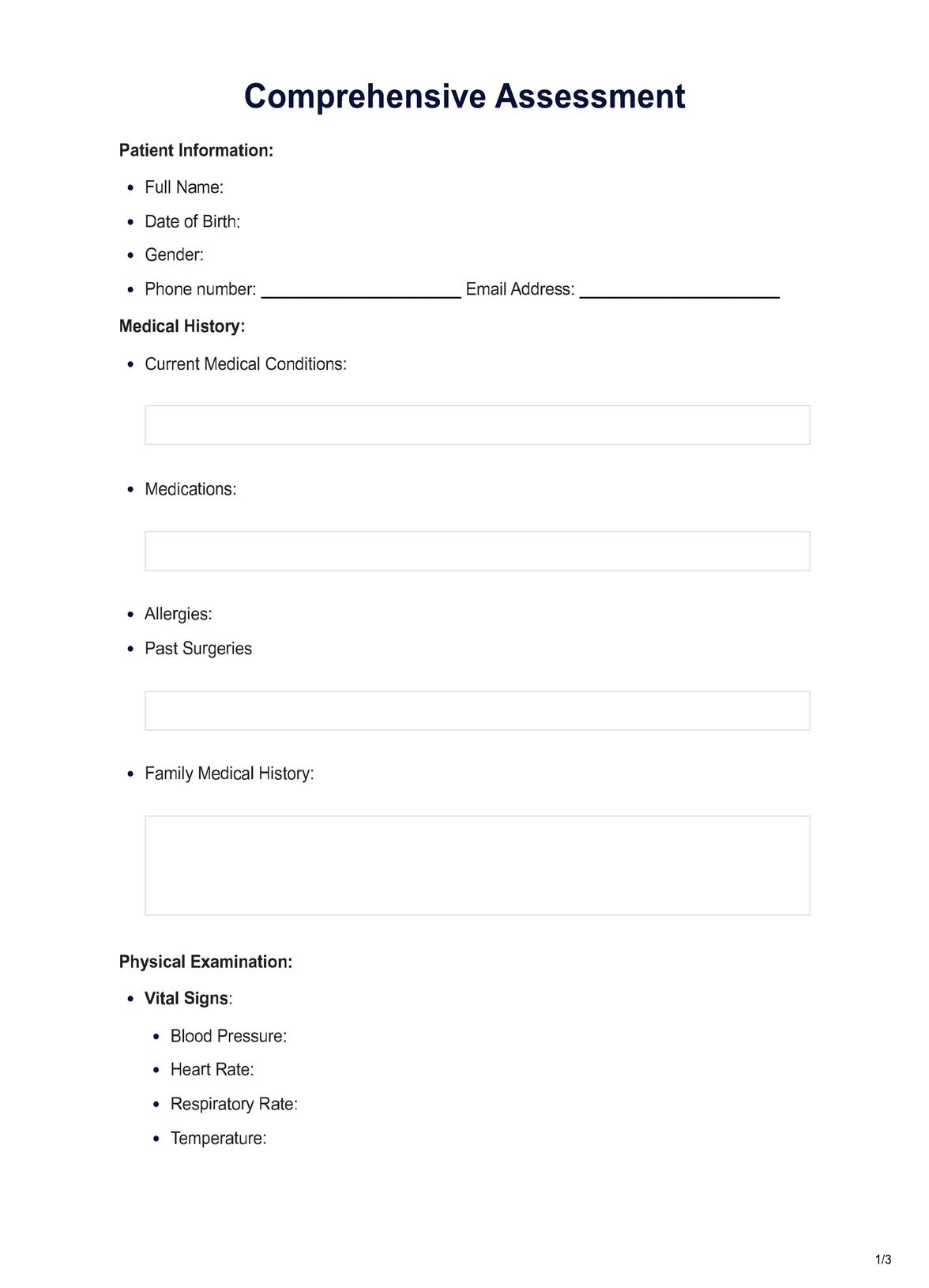A Comprehensive Assessment is important because it provides a holistic understanding of your health, considering various factors like medical history, physical health, mental well-being, and social support systems. This enables healthcare providers to develop personalized care plans and make informed clinical decisions.

Comprehensive Assessments
Gain deep insights into your health with our Comprehensive Assessments. Expert evaluations for informed healthcare decisions.
Comprehensive Assessments Template
Commonly asked questions
During a Comprehensive Assessment, you can expect to undergo a thorough evaluation, including a review of your medical history, physical examinations, diagnostic tests, assessments of functional abilities, and psychosocial evaluations, all aimed at gathering detailed information about your health status, needs, and capabilities.
During a Comprehensive Assessment, you can expect to undergo a thorough evaluation, including a review of your medical history, physical examinations, diagnostic tests, assessments of functional abilities, and psychosocial evaluations, all aimed at gathering detailed information about your health status, needs, and capabilities.
EHR and practice management software
Get started for free
*No credit card required
Free
$0/usd
Unlimited clients
Telehealth
1GB of storage
Client portal text
Automated billing and online payments











